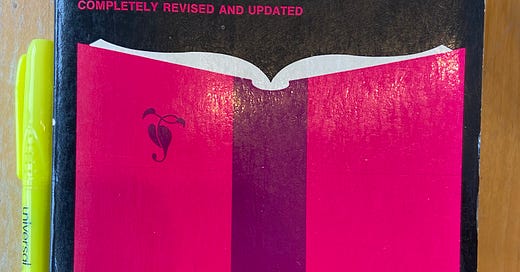How to Read a Book, Chapter 10
Chapter 10: Criticizing a Book Fairly
Now that we've completed the introductory chapters and have learned the basic elements of careful, active reading, Adler and Van Doren began describing how we could enter into a "conversation" with a book and its author. In most cases this is a virtual conversation, since the author is often long dead. One somewhat humorous advantage of this is that "the reader is the one who has the last word", but on a more serious note, that means we are solely responsible for ensuring that the conversation is an honest and useful one. Although "there is an intellectual etiquette to be observed," there is typically no one looking over our shoulders to insure we are engaging as we ought and honoring what the authors claimed is a sort of obligation to the authors of serious works.
Adler and Van Doren have said again and again that people have a responsibility as citizens to think about important topics. Active reading, they said, "must be completed by the work of criticism, the work of judging." This level of engagement is something they believed we owe to the civilization that is not only sustaining us physically but inviting us to participate. But this participation should not come in the form of blind acquiescence; it should be based on a reasoned response. Criticism is valuable whether it takes the form of agreement or reasoned dissent.
The authors go out of their way in this chapter to emphasize the idea that the "virtue of teachability" should not be "confused with subservience." In their view, learning is not about passively receiving the wisdom of our betters. It is an active process of requiring proof and objecting to assumptions, arguments, or opinions that are not supported. This is in keeping with their argument that a liberal education is necessary for a functioning democracy and is a clear refutation of the claim made by their detractors that they were just pushing the elitism of the dead-white-European-male canon. In fact, they drew attention to the root idea of "liberty" and said, "To regard anyone except yourself as responsible for your judgment is to be a slave, not a free man. It is from this fact that the liberal arts acquire their name."
Adler and Van Doren also cautioned, however, against rushing to judge before we fully understand. The first of the three rules they offered in this chapter was "Rule 9: You must be able to say, with reasonable certainty, 'I understand,' before you can say any one of the following things: 'I agree,' or 'I disagree,' or 'I suspend judgment'." The idea of suspending judgment is interesting; it seems to indicate either that the author left some loose ends or that the reader recognizes there is more to the issue than the author considered. Adler and Van Doren mentioned that many authors developed their ideas over several books, so it makes sense to respond to things we read with qualified rather than absolute agreement or disagreement.
The tenth and eleventh rules regard how we should engage in our criticism. Rule 10 said, "When you disagree, do so reasonably, and not disputatiously or contentiously." A big element of this involves cultivating a sense of intellectual modesty and remembering that we may be wrong. This idea was reinforced in the final rule, which said "Respect the difference between knowledge and mere personal opinion, by giving reasons for any critical judgment you make." The point is not only that we may be mistaken, but that "most knowledge lacks that degree of absoluteness" that would make it a self-evident, eternal truth. Although they believed "the great majority of disagreements can be removed by the removal of misunderstanding or ignorance," Adler and Van Doren did not claim that Great Books could not be disagreed with. Their attitude, actually, seemed remarkably open-minded and optimistic. They believed that if sincere people actually worked at reasoning with each other, progress could be made. But this would involve disciplining ourselves to really understand the other speaker's argument and then engaging with their ideas in a reasoned way; trusting that the other speaker would do the same. This is a level of sincerity and intellectual honesty sorely lacking in our discourse today; so this advice is especially timely.




